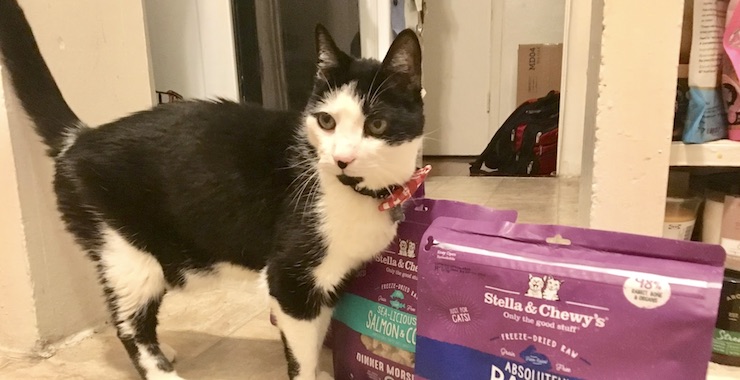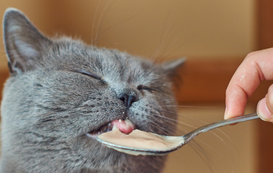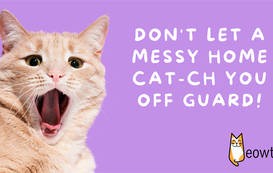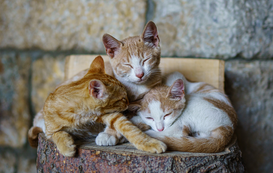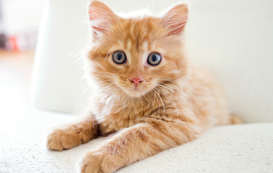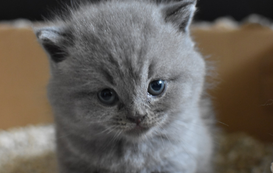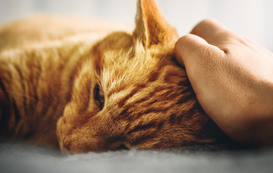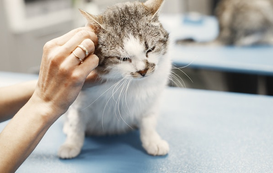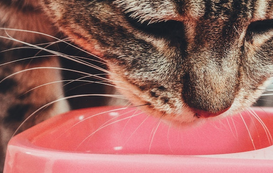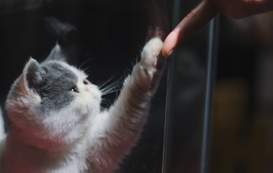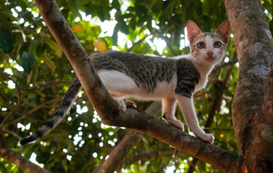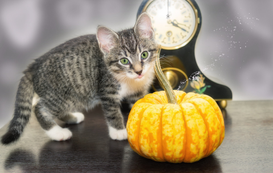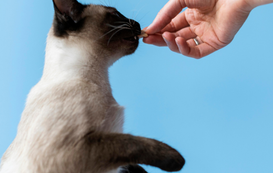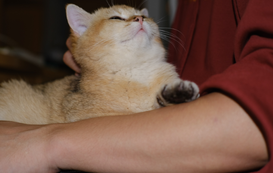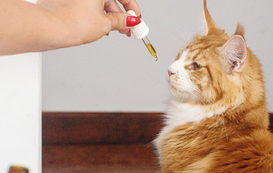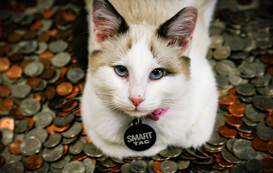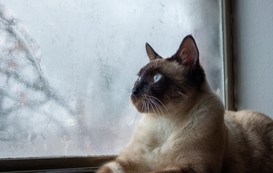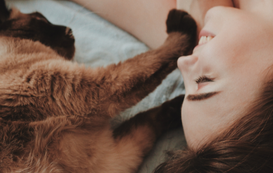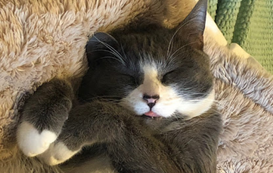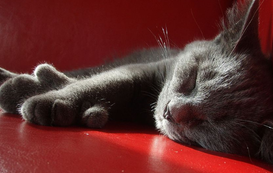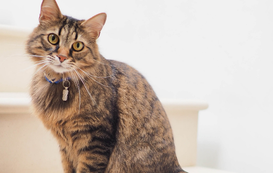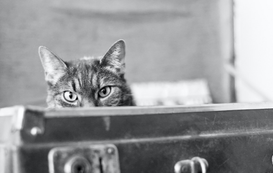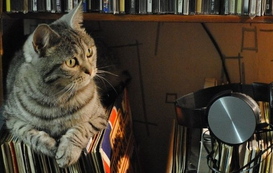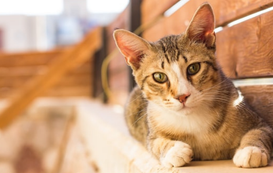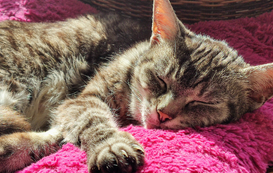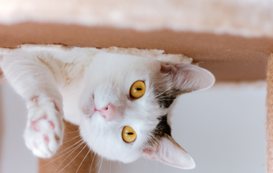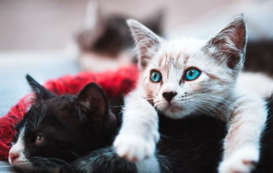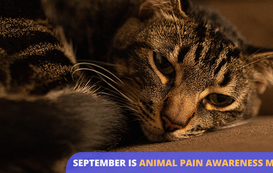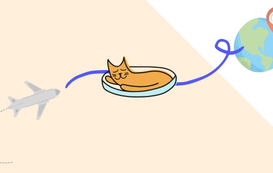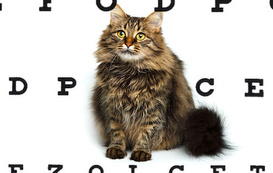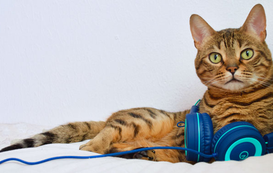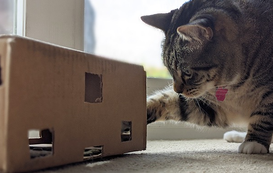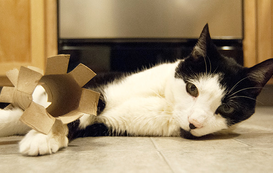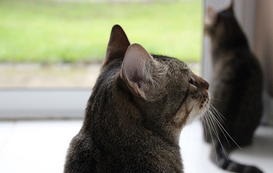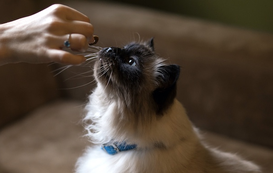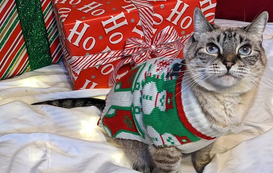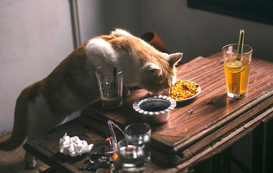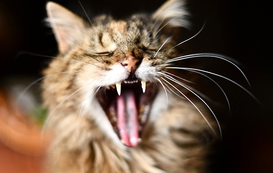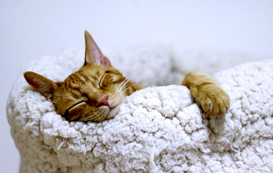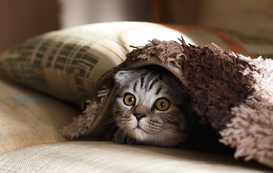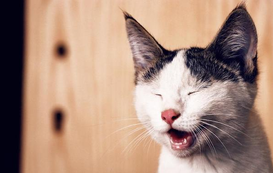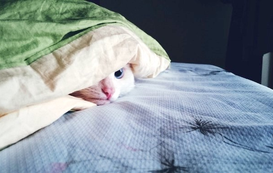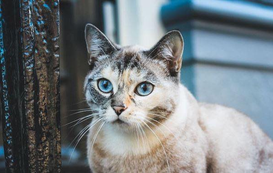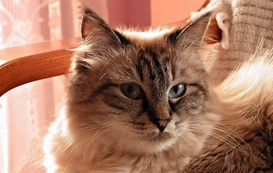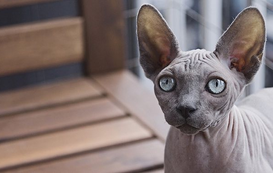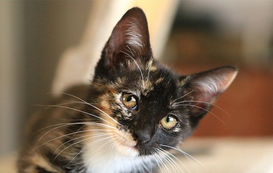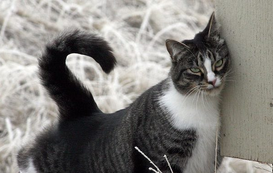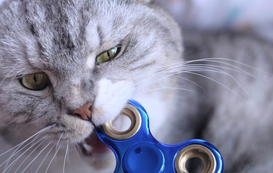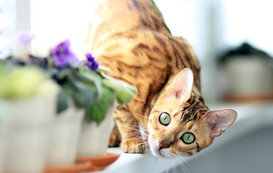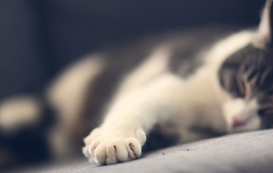Popular posts
To Raw Food Diet or Not? The Kitty Parent Question
This post contains affiliate links and Meowtel will be compensated if you make a purchase after clicking on the links.
There is an ongoing debate about whether or not raw diets are good for cats. Naysayers point out that cats may contract diseases from the meat, and these could affect humans with low immune systems as well. Those who are for it say there are fewer fillers and garbage, making it more natural. What do I think? I’m an advocate for a raw diet. Read on to see how a raw diet has helped my cat as well as the arguments for both sides, in detail.
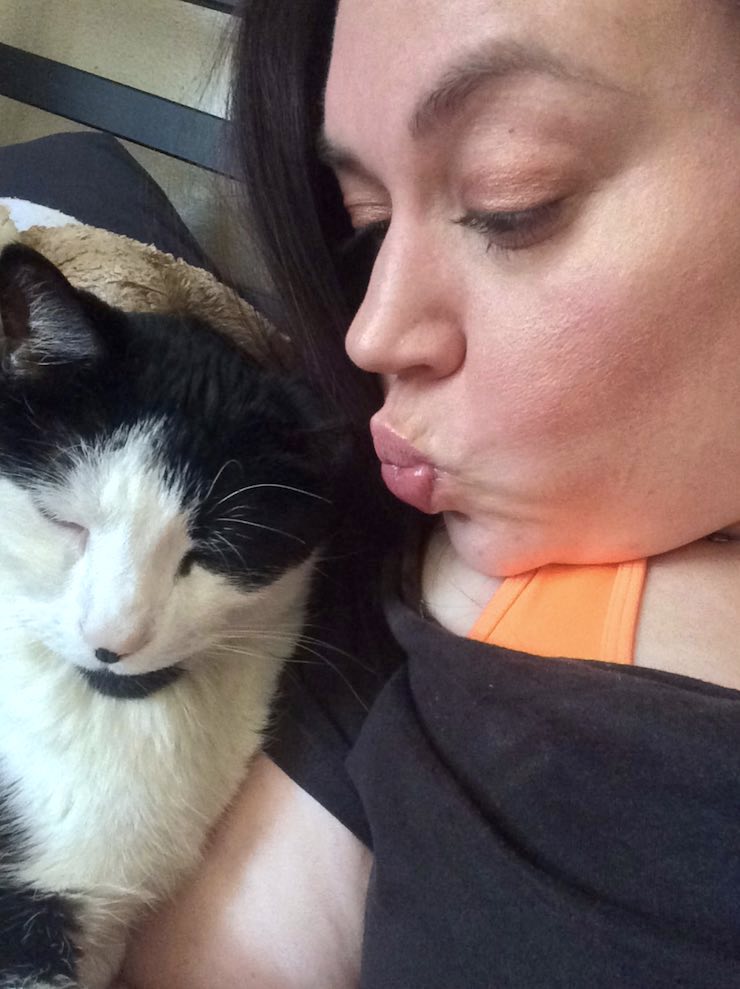
*Max, clearly thrilled about my love *
I should start by saying that I am not a vet, vet tech nor an animal nutritionist. Now with legalities out of the way, I will say that I am 100% pro raw food diet. And that comes from personal experience.
Our story of kitty digestion woes
The love of my life, Maxwell Wellington, is anywhere between 13.5 and 15 years old. He has a plethora of health issues. He has chronic pancreatitis, inflammatory bowel disease (IBD), hyperthyroidism, a slight heart murmur (only registers as a one on the scale), and hovers above kidney failure. Because of his IBD, Max would often have nasty, stinky, liquid poops. He would often be nauseous which would result in him not eating, changing his mind constantly on what he would eat (at one point I had three shelves full of various types of wet food, raw food, treats, supplements, etc), licking walls (yeah, that’s a thing) and having constant liquid poop.
I tried every “good” wet food I could get (single-protein, does not contain byproducts, meals, soy, or gluten, and has limited ingredients) and he would eat a little bit, walk away and refuse to eat for a day or two. I tried everything to get him to eat. My vet prescribed two different types of appetite stimulants. Neither helped. One made him puke almost immediately. We tried steroids. Chinese herbs; he wouldn’t touch them. I tried various fish-flavored wet foods (he’s allergic to chicken and beef). He’d eat it for a day or two and stop. I tried turkey (fun fact, if your cat is allergic to chicken, it doesn’t mean he/she will be allergic to all poultry). Sometimes he ate it, sometimes he didn’t. I gave him cans of human-grade tuna and salmon. Same deal.
I was at my wit’s end. It felt like I had tried absolutely everything and nothing was working. You may wonder why I felt the need to keep trying things and not let him go, considering he has all of these issues. Well, you see, he’s still got fight and life in him. His personality and his eagerness to be here hasn’t once changed. He still greets me at the door meowing. We still have long conversations about his day (he usually just tells me he slept and pooped). He wants to be here, and he doesn’t seem to be in physical pain. When that changes, then we’ll figure it out but for now, I was determined to try everything in my power to make him eat and feel better.
I spent countless hours researching what was the best option for a cat with IBD and more often than not, the articles I read said raw diets were the way to go. I read forums, replies, vet replies, and various websites that all were proponents for a raw diet. So many people said a raw diet helped their cat’s IBD virtually disappear. I decided that I was going to transition Max back onto a raw diet and see if it would help—since nothing else seemed to.
Max was on a raw diet two years ago, but kept changing his mind on what type of protein he would eat. At the time, I was purchasing Primal, which is a reputable raw manufacturer. The problem I would encounter was that every third bag or so, Max would vomit. I’m not sure if this was a product issue or if it was all of Max’s ailments acting up, but we went off raw for a while. However, this time when I decided to transition him back to raw, we went with Stella & Chewy’s. Like Primal, Stella & Chewy’s is a reputable brand. Unlike Primal, Stella & Chewy’s has yet to make Max vomit. Again, maybe it’s the quality of the product or maybe Max is just feeling better overall. Either way, both of us are strong believers in Stella & Chewy’s raw food.
Max’s results on raw food
Max still constantly changes his mind on what type of protein he wants but generally speaking, he is into it. Some days he will eat rabbit, some days turkey and some days he eats cod and salmon. Since switching over to raw, he poops less and it smells less as he is absorbing the nutrients rather than just excreting everything that goes into his little body. His poops have been solid and normal 95% of the time. He used to have awful gas and terrible belly rumbles (to the point that he was on human Pepcid twice a day and could literally clear out a room with his farts) and now, that’s gone. He’s even off Pepcid completely.
His coat, which had previously become coarse, is smooth and shiny. He had stopped playing completely at the end of last year but since switching his diet, he plays. Don’t get me wrong, he doesn’t play like a kitten, but he does play with some toys in the middle of the night and he’ll even play with a kitty whip that was given to him by a client of mine. I was preparing his food this evening and I heard a commotion. I turned off the water and walked into the living area and he was chasing his little rattle mouse around the apartment. Seeing him play makes me so happy.
More thoughts on a raw diet
As a vegetarian, I think raw meat is disgusting—but if it helps my boy, I’ll do it. We’ve used both frozen raw and freeze-dried raw as they have the same nutrients. However, we both prefer the freeze-dried. It’s quicker, easier, and less gross for me. As for why Max prefers it, I couldn’t tell you and unfortunately, he isn’t talking.
One of the issues often brought up is that raw meat can carry bacteria which will make the cat or human who handles it sick. This is where logic should come into play. If you’re preparing raw chicken for yourself, wouldn’t you wash your hands, knives, cutting board and area with hot water and soap? Well, that’s exactly what I do after I prepare a meal for Max. You wouldn’t leave raw chicken out for six hours, so don’t leave their raw food out that long either. The longer the food is out, the more likely it is to grow bacteria—but again, this goes for human food as well. Would you eat a yoghurt that sat out for hours? Probably not.
A vet’s view
One veterinarian who is pro raw diet is Andrea Tasi, VMD. Tasi published an article in April 2019 expressing her pro raw diet views on the Feline Nutrition Foundation site. Tasi graduated from the University of Pennsylvania School of Veterinary Medicine in 1988 and has been in a cat-exclusive practice since 1991.
She had been treating a senior cat, also named Max, who had chronic skin and ear problems and was on cortisone-type drugs and prescription diets. His mom decided to switch Max to a raw diet and his ailments disappeared.
Tasi said her
“interest was sparked! I began to read about cat nutrition and cat diets and talk to veterinarians and pet owners who had been feeding raw cat food diets. I was amazed at what I was hearing, so decided to try a raw diet with my new kitten, Bug. I had adopted Bug as a sickly, near death and underweight 6 month old. I watched him blossom on the diet, gaining healthy muscle mass weight but not becoming fat, developing a beautiful coat and clearing many of his chronic health problems without the need of conventional drugs. I am convinced that this change to raw food for cats was the foundation for his wonderful recovery.”
She said that prepared raw diets are easy but also gives pointers on how to make your own raw food if that’s something you’re interested in.
Tasi also mentions why some vets are opposed to raw diets.
“Veterinarians actually receive very little training in nutrition. In my 4 years of veterinary school, I had one class, one semester long, on nutrition. Most of this course focused on which prescription diet to recommend for which disease and why. For well pets, I was taught to recommend "Pick one dry food and stick with it." A major pet food manufacturer supplied free pet food to veterinary students and free prescription diets to the University's veterinary hospital for use with hospitalized animals. Is it any wonder that most vets come out of school recommending that manufacturer's products? We were cautioned that it was complicated and risky for owners to make their own cat food, and that raw meat was full of harmful bacteria and parasites that would sicken animals and possibly their owners. As I began to become interested in raw cat food and spoke with veterinarians who had been recommending it for years, I was happily surprised to find that raw-food related health problems were few and far between, and that the benefits were amazing.”
She even said, “Every cat will respond in her own way, but I now view it as the best medicine for many of my patients.”
On the flip side, the American Veterinary Medical Association (AVMA)
“discourages the feeding to cats and dogs of any animal source protein that has not first been subjected to a process to eliminate pathogens because of the risk of illness to cats and dogs as well as humans. Cooking or pasteurization through the application of heat until the protein reaches an internal temperature adequate to destroy pathogenic organisms has been the traditional method used to eliminate pathogens in animal-source protein although the AVMA recognizes that newer technologies and other methods such as irradiation are constantly being developed and implemented.”
As you can see, what the AVMA recommends is the literal exact opposite of what Dr. Tasi says and believes.
Each cat is different
Cats are like people in many ways. Each cat will respond to medications, supplements, and diets differently just as humans do. While steroids usually make cats hungry (as it does for many people), it did not do so for my cat. The one thing that is similar in both humans and cats is that diet is usually not only the root of many health issues but also the fix. If you’re interested in switching your cat over to a raw diet, be sure to do your research and obviously, check with your vet.
Meowtel’s sitters are experienced and passionate, and can look after your precious kitty while you travel no matter what diet they follow. Find a sitter today who can take the best care of your cat.
Maxwell Wellington with his Stella & Chewy’s

